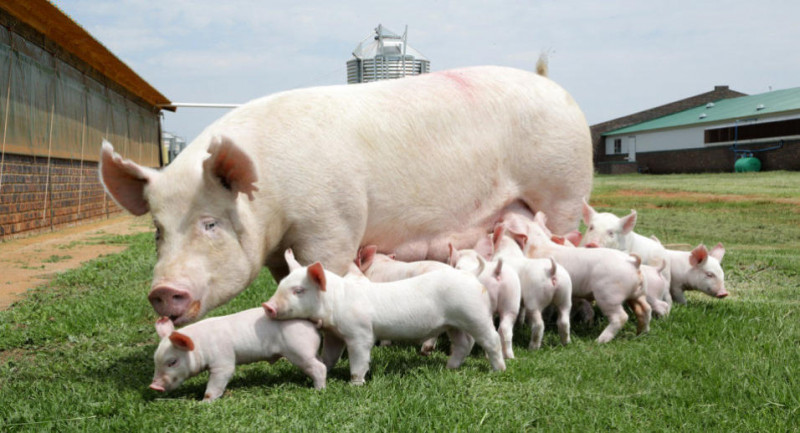Brazil strengthens surveillance after ASF confirmed in the Dominican Republic

Brazil’s Ministry of Agriculture, Livestock and Supply (Mapa) says it is monitoring the occurrence of two outbreaks of African Swine Fever (ASF) in the Dominican Republic.
This is the first record of the disease on the American continent since the 1980s, when the disease was considered eradicated, after occurrences in Brazil, Cuba, Haiti and the Dominican Republic itself.
The diagnosis was made at the US Department of Agriculture’s (USDA) Laboratory for Exotic Diseases Diagnostics and after confirmation, the country notified the World Organization for Animal Health (OIE) on July 29th.
The arrival of ASF in the American continent increases the state of care with intensifying measures to prevent the introduction of the disease in Brazil. Aiming to keep the country free of ASF, the Ministry has been adopting the necessary measures that the situation requires and has already issued an alert for the actions of the sectors of import control, international agricultural surveillance and official animal health services.
“We reinforced the recommendations for surveillance in ports and airports, to ensure that airlines, maritime companies and travelers abide by the bans on the entry of products that represent a risk of pests and diseases for agriculture,” highlights the director of Animal Health, Geraldo Moraes.
Brazil has a specific surveillance system and contingency plans for swine hemorrhagic diseases, whose target diseases are Classical Swine Fever and African Swine Fever. Since 2018, when ASF spread in China and other countries in Asia and Europe, the Ministry of Agriculture has been developing actions to strengthen the capacities to prevent the entry of the ASF virus in the country, aiming at early detection and diagnosis and rapid response to possible incursions of the disease in Brazil.
It is essential that pig farmers and agribusinesses intensify biosafety procedures in breeding establishments, especially regarding the entry of animals, food, supplies and visitors, and immediately notify any suspected cases of the disease to the official animal health service, for prompt investigation.
The Animal Health Department of the Ministry of Agriculture and Livestock Defense of the Ministry is in close contact with the animal health authorities of the Dominican Republic, with regional organizations and with the OIE representation in the Americas, with a view to deepening knowledge on the situation of the occurrence and to provide support for the elimination of outbreaks and containment of the spread of the virus, allowing the recovery of the American continent’s condition free from ASF.
On Friday (July 30), the Map released the Integrated Plan for Swine Disease Surveillance, which aims to strengthen the capacity for early detection of cases of Classical Swine Fever (PSC), African Swine Fever (ASF) and Reproductive and Respiratory Syndrome (PRRS), as well as demonstrating the absence of diseases in domestic swine.
African Swine Fever
African Swine Fever is a viral disease that poses no risk to human health, but can decimate swine farms as it is highly transmissible and leads to high rates of mortality and morbidity. Considered by the OIE as one of the most relevant diseases for the international trade of swine products, ASF only affects swine.
Currently, Brazil is the fourth largest producer and exporter of pork in the world. It produced 4.436 million tons in 2020 – around 4.54% of world production – and exported 1,024 thousand tons – 23% of national production – to 97 countries.
In Brazil, the disease was introduced in 1978 in the state of Rio de Janeiro, through contaminated food residues from international flights originating in countries where the disease was present. The last occurrence of ASFin Brazil was registered in the state of Pernambuco, in November 1981, and the measures applied by the official Brazilian veterinary service allowed the eradication of the disease throughout its territory and the declaration of a ASF-free country in 1984
Read also
Wheat in Southern Brazil Impacted by Dry Weather and Frosts
Oilseed Industry. Leaders and Strategies in the Times of a Great Change
Black Sea & Danube Region: Oilseed and Vegoil Markets Within Ongoing Transfor...
Serbia. The drought will cause extremely high losses for farmers this year
2023/24 Safrinha Corn in Brazil 91% Harvested
Write to us
Our manager will contact you soon



